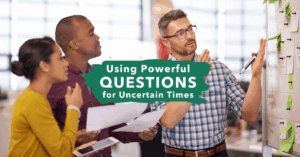If there was one thing that is needed during this global pandemic, second only to a vaccine, it is resilience. Even with the good news about two promising vaccines, as I write this in November of 2020, by all measures, it seems as if we have at least another six months ahead. More isolation. More economic hardships. More loss of those we love. More fear about our own health and that of our loved ones.
I have always been fascinated yet never understood why some people were more resilient than others. Why some children raised in terrible situations would rise above and thrive. Why some adults, seemingly with a solid foundation and ample resources crumbled at the first whiff of adversity. Why some can take heartbreak and find the hope within and others only can see the darkness.
Luckily, scientists and psychologists have been wondering the same thing. And thanks to them, in this time that requires great resilience from each of us, we can learn from their gleanings.
First a definition. Resiliency is the ability to recover quickly from difficulties. To bounce back. To not allow hardships to stretch you to a breaking point or to become dysfunctional or disillusioned or bitter or calloused.
There are seven skills associated with resiliency. I take heart in the fact they are skills because skills can be learned. There may be variations in our degree of aptitude with each, but each of us can improve our ability to be resilient in ways that will serve us well in the next six months as well as the rest of our lifetime.
Here are the seven resilience skills:
- A belief in your ability to cope
- Staying connected with your sources of support
- The ability to talk to others about what you are going through
- Helping others
- Activating positive emotion
- Cultivating an attitude of survivorship
- Seeking meaning
Whoa you might say! Many of these appear to be beliefs and attitudes and not skills. And yes, that is true.
But what is also true is that there are many things we can do to shape our beliefs and attitudes. It is one reason that mindfulness is so powerful in difficult times. For practices of mindfulness enable us to activate positive emotion, for example with a practice of gratitude. These practices can center us and help us cope. They can put us in touch with making our own meaning out of the place we find ourselves.
I encourage you to take a hard look at this list of 7 skills. For they just may be your lifeline in the next 7 months. They can make a huge difference in the quality of your life and the lives of those you touch now and far into the future.




